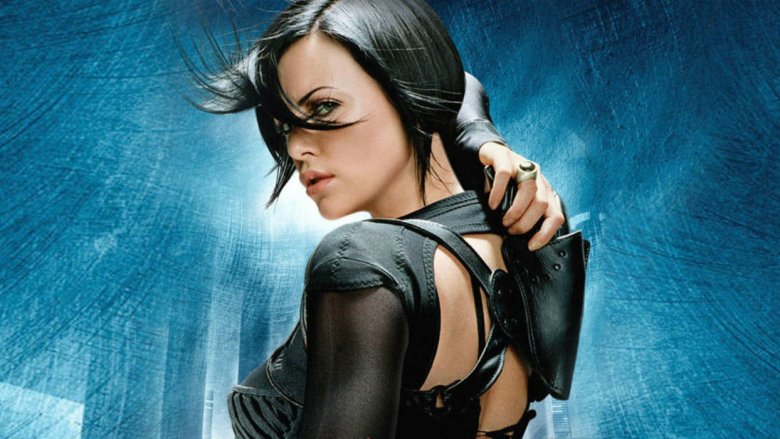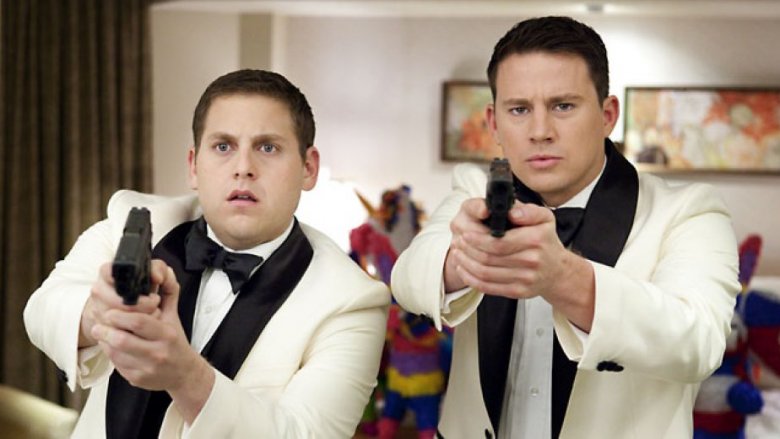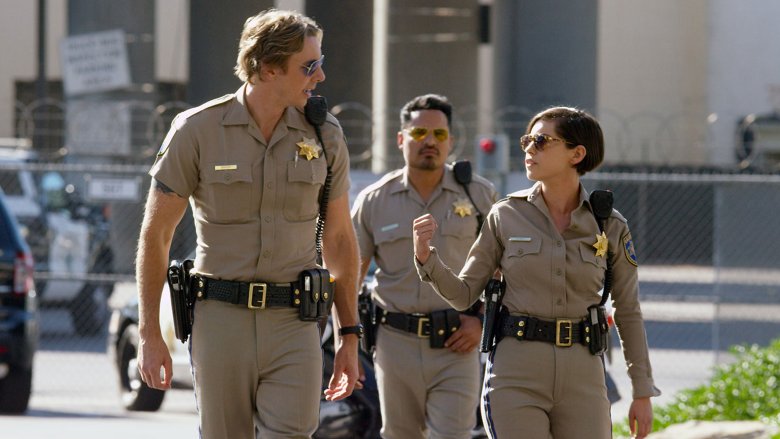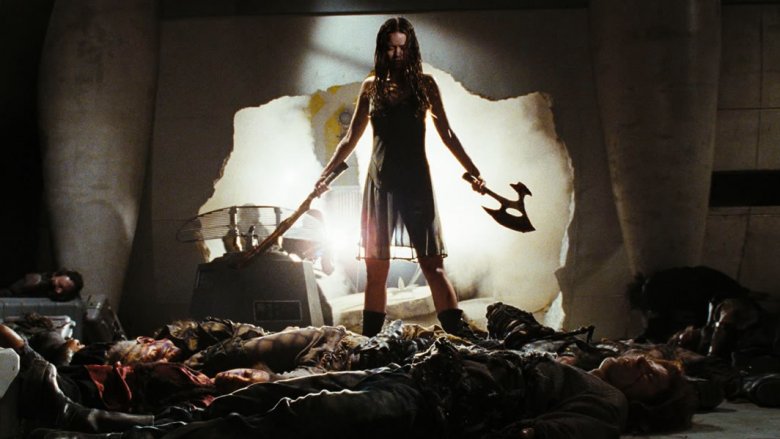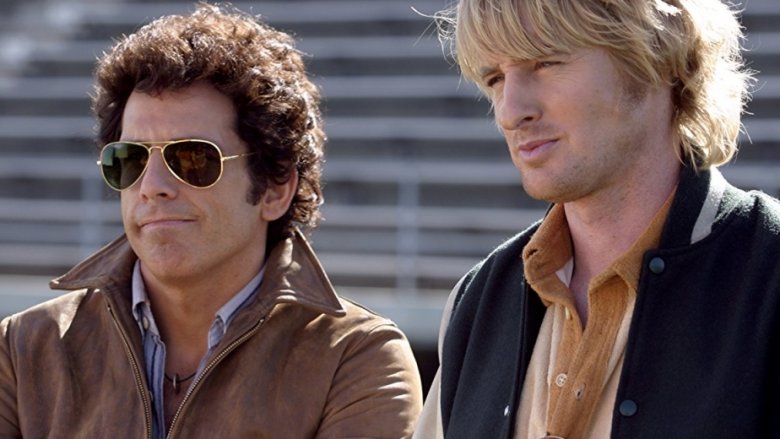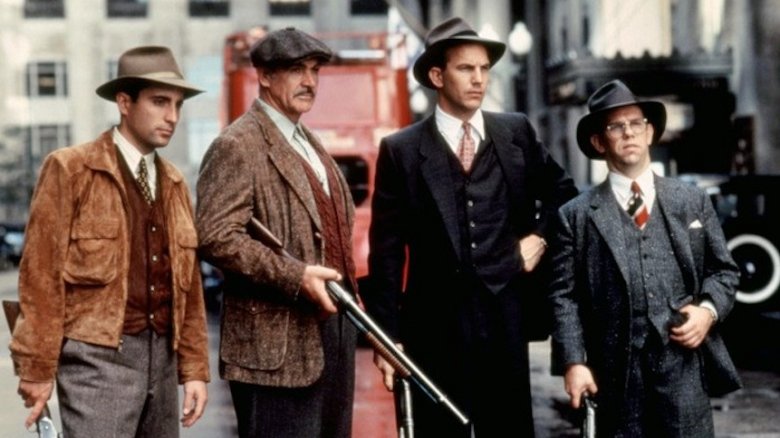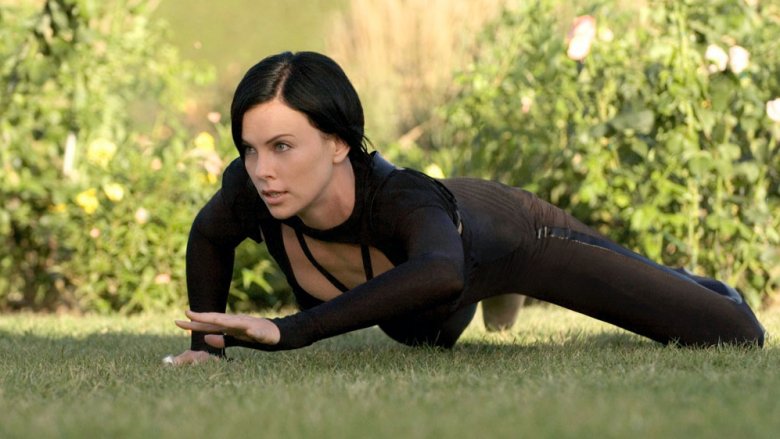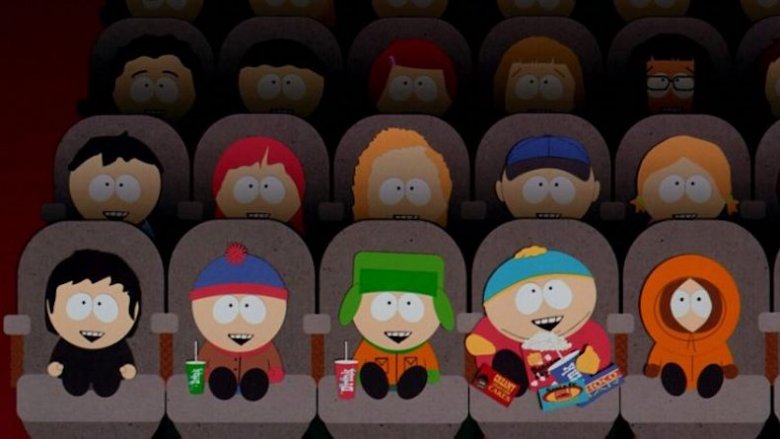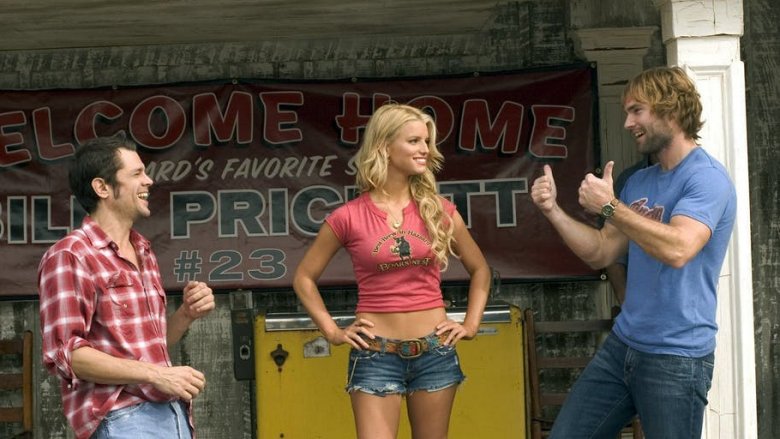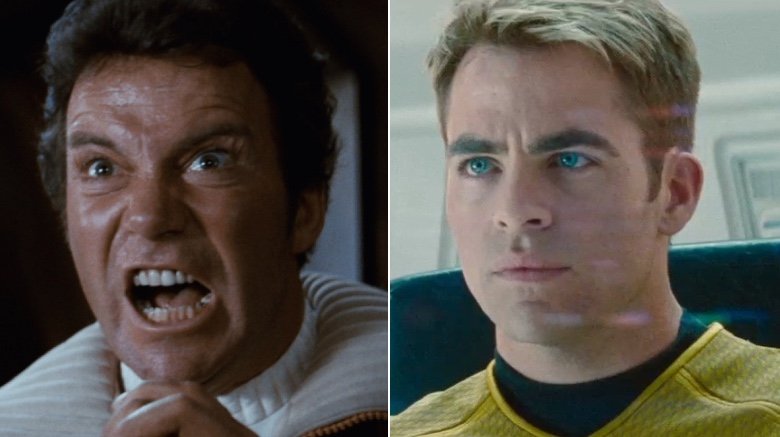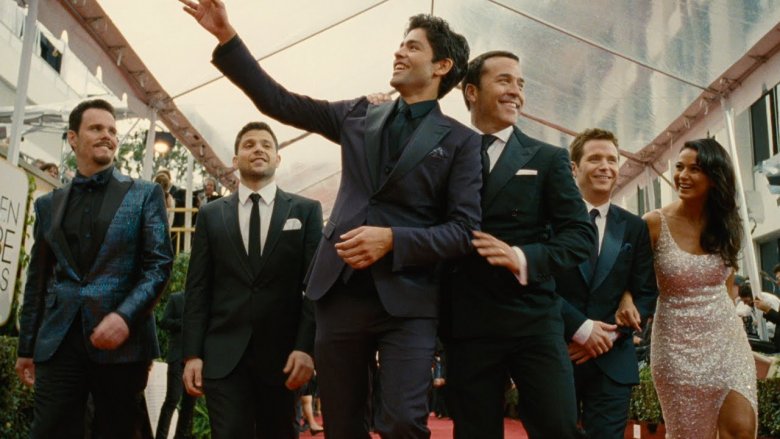The 5 Best And 5 Worst Movies Based On TV Shows
As the new golden age of television continues, the small screen is looking more and more like the new big screen. The line between film and TV productions is blurrier than ever, and it's fascinating to watch the two mediums influence each other — particularly as some of the more widely acclaimed small-screen hits of late (Westworld, Fargo) were adapted from big-screen versions of the same (or at least similar) stories. That road runs both ways; just as television continues to borrow intriguing ideas, characters, and stories from its big-screen brethren, so too do movies borrow from TV. Whether from the box office to the broadcast dial or vice versa, the results of such adaptations can often be inconsistent. Here's a look at a few of the bigger hits — and most disappointing misses — in the cagey canon of movies based on TV shows.
Best - 21 Jump Street (2012)
Decades into a movie career that's brought him fame, fortune, and an ever-increasing array of personal problems, it's easy to forget that Johnny Depp actually got his start on 21 Jump Street, the stylish drama about fresh-faced undercover cops that aired on Fox between 1987 and 1991. All told, Depp featured in 82 episodes of the series, and left the series en route to mega stardom. Without his burgeoning star power, the show was canceled just a year later.
Still, the series remained a touchstone for '80s kids in the wake of its cancellation. Two decades after its run, that concept was adapted into a feature film that found Jonah Hill sharing the screen with Channing Tatum, and saw young filmmakers Phil Lord and Chris Miller on board to direct. What that talented crew brought to theaters may have been titled 21 Jump Street, but it was an adaptation in idea only. Fueled by whip-smart dialogue, pitch-perfect comedic performances and hilarious sight gags, this largely humorous take scored big with both critics and audiences.
Worst - CHIPs (2017)
To viewers of a certain age, the names "Ponch and Jon" are likely to trigger fond memories of lunch pails and daydreams about one day becoming a member of the California Highway Patrol's motorcycle brigade. For younger audiences, those names are more likely to inspire shudder-worthy memories of a painful filmgoing experience.
Dax Shepard is a member of that older generation, but he's also responsible for the bad memories of the second — he wrote, produced, directed, and starred in 2017's uninspired big-screen adaptation of beloved '70s cop drama CHIPs. The film finds Shepard playing "Jon" to Michael Peña's "Ponch," and both struggle mightily to find anything funny or even interesting to do. While CHIPs does feature some genuinely impressive stunt work and a couple of hearty belly laughs, it's just a mess of a film, fumbling through overly intricate set pieces and silly subplots, tragically missing the mark with almost every adolescent punchline. It doesn't spoof the source material enough to play as satire, and doesn't embrace the aw-shucks sincerity of the original enough to play as homage. What's left is a sloppy blend of disparate tones and half-baked jokes that we'd rather forget ever made it to theaters.
Best - Serenity (2005)
There are few creators with a fanbase as devoted as Joss Whedon's. Over the years, this vaunted guru of geekdom has brought us such singular creations as Buffy the Vampire Slayer, Angel, and Dr. Horrible's Sing-Along Blog. Along the way, he's also tinkered with Shakespeare (Much Ado About Nothing), scripted the meta-horror film to end them all (The Cabin in the Woods), and delivered two of the highest-grossing movies of all time in The Avengers and Avengers: Age of Ultron. Still, for many of Whedon's most ardent fans, his 2002 sci-fi/western series Firefly remains a career high point — even if that series was unceremoniously canceled.
In the wake of Firefly's demise, Whedon scripted a feature-length continuation of the series titled Serenity, which arrived in 2005, proving Whedon's wildly original vision worked even better on the big screen — and delivering all the laughs, shocks, style, and crackling dialogue fans of the series expected on a much larger scale. Unfortunately, the scale of the audience didn't change. Serenity failed to make an impression at the box office, thus dooming Mal and River and the gang to live on (mostly) in reruns.
Worst - Starsky and Hutch (2004)
Between 1975 and 1979, you'd have been hard pressed to find two cooler cats on television than Ken Hutchinson and Dave Starsky. You might know them as the main characters of Starsky & Hutch, streetwise cops tasked with cleaning up the streets of Bay City with the help of a smooth-talking informant named Huggy Bear and a kickass Gran Torino. In its four-season run, Starsky & Hutch earned legions of fans and became a touchstone for '70s pop culture. By the end of that run, it had also sort of devolved into self-parody.
That pseudo-satirical edge is likely what attracted the attention of director Todd Phillips, who — fresh off the success of his bro-centric college comedies Road Trip and Old School — was looking to take his comedic stylings off campus and into the mainstream. To his credit, Phillips almost pulled it off: Starsky & Hutch isn't terrible as much as it's grossly underwhelming. Phillips does crackerjack work in recreating the look and feel of the original series, and he assembled a stellar cast of comedic talent that should've ensured a laugh a minute. Unfortunately, the laughs never really come — and when they do, Phillips runs them into the ground with irritating aloofness. Along the way, his Starsky and Hutch devolves from clever, light-hearted satire to the sort of plodding, unfunny dreck you flip mindlessly past while channel-surfing in the middle of the night.
Best - The Untouchables (1987)
These days, it sometimes seems as if a new historical drama comes to television almost every week. That wasn't the case in 1959, when ABC debuted The Untouchables. Based loosely on Eliot Ness' Prohibition-set memoir of the same name, the groundbreaking series ran for four seasons, and followed Ness (played by the legendary Robert Stack) and his incorruptible team of FBI agents in their efforts to make America sober again while taking down mob kingpin Al Capone in the process.
That tale was as gritty and as harrowing as it sounds, and often felt a little too big for a serialized small-screen treatment. Luckily, the brilliant David Mamet got his hands on the source material in the mid-'80s and cranked out a sprawling screenplay worthy of Ness' tale. Brian De Palma brought that script before cameras with Kevin Costner, Sean Connery, and Robert De Niro in tow. They delivered that rarest of gangster flicks — it manages to be stylish and brutal while also delivering the goods in terms of character, plot, and real-world drama. Of course, that drama sometimes dips into melodrama — Ennio Morricone's brilliantly lavish but occasionally overwrought music plays a big part — but when the product is this good, those criticisms are quibbles.
Worst - Æon Flux (2005)
Believe it or not, there was a time when MTV dedicated much of its programming to music videos, mostly airing original programming in late-night timeslots. With its near-hallucinatory blend of pitch-black comedy serials, unsettling standalone tales, and outsider energy, their largely animated anthology series Liquid Television was arguably the most intriguing — and the unabashedly sexy, dystopian thriller Æon Flux, featuring hyper-stylized action, breathtakingly expressionistic visuals, and wildly inventive storylines, was always a highlight.
Of course, that highlight typically arrived as a three-to-five minute segment of a 30-minute show. When the series expanded into longer episodes, the show's eccentricities lost some of their impact. The producers of the big-budget live-action movie based on Æon Flux probably should've taken note of that — though one could hardly blame them for being overly excited with talents like Charlize Theron, Frances McDormand, and director Karyn Kusama attached. Still, talent and good intentions do not a good movie make, and in the almost 15 years since, the animated series is remembered far more fondly than its lavishly obtuse adaptation.
Best - South Park: Bigger, Longer & Uncut (1999)
Producers have been trying to bring hit animated series to the big screen for decades, and almost all of them have failed. One rare exception is South Park: Bigger, Longer & Uncut. Released in the summer of 1999, this feature-length adaption of one the raunchiest animated series in the history of television immediately became one of the raunchiest animated features in history — and it also proved to be the musical event of the decade.
With its endless array of sight gags, one liners, and set pieces — coupled with a visual scale all but unseen in the series and some truly unforgettable (even Oscar-nominated) musical numbers — the movie undoubtedly feels bigger than anything South Park creators Trey Parker and Matt Stone had attempted before. Still, the "uncut" part of the title proved the real game-changer, allowing everyone involved to push the limits of good taste beyond anything even the series' most devoted fans might've expected. Like the show's best episodes, it isn't just rude, it's an incisive sociopolitical satire — one that feels almost as timely today as it did when it was released.
Worst - The Dukes of Hazzard (2005)
While Hollywood has often turned to the name-brand recognition of a TV show to help drive audiences into theaters, recent years have seen a glut of such marketing-based maneuvering. Most of those adaptations fall somewhere between vapid pastiche to tragically uninspired homage in terms of quality. Based on the hit series about a couple of fast-driving moonshiners who — with the help of their sexy but savvy cousin — are locked in an endless battle of wits with local law enforcement, The Dukes of Hazzard is one adaptation that turned out to be utterly unwatchable rubbish.
It didn't have to be this way. The original series was fun to watch in a trashy sort of way, and the big-screen version sported a fair amount of comedic talent, including leads Sean William Scott and Johnny Knoxville; Jay Chandrasekhar (fresh off of Super Troopers success) was a promising pick for the director's chair. Unfortunately, The Dukes of Hazzard also sported a screenplay that never aimed any higher than insultingly simplistic, juvenile humor. It also featured a performance from Jessica Simpson so glaringly terrible even she's spoofed it since. Chandrasekhar tried to paste over the movie's problems with slick cuts and bombastic set pieces, in the end, his The Dukes of Hazzard just turned out to be a bigger, dumber version of a show that's way more fun in reruns.
Best - Star Trek II: The Wrath of Khan (1982) and Star Trek (2009)
Few if any television series have had as much big-screen influence as Star Trek. Since beaming onto screens in 1966, Gene Rodenberry's space-set adventure series has spawned an ever-expanding universe of spinoff series and no fewer than three separate cinematic franchises. Two of those are directly rooted in the original series and, as one would expect given its pulpy roots, those films vary dramatically in quality. They definitely have their highlights, however, led by 1982's Star Trek II: The Wrath of Khan and J.J. Abrams' 2009 franchise reboot, Star Trek.
Wrath of Khan is arguably the most beloved movie in the Star Trek cinematic universe, and perhaps even one of the best sequels ever produced. To that point, there's little doubt that the film surpasses 1979's Robert Wise-directed Star Trek in virtually every way, delivering some of the most iconic moments in the Star Trek canon to boot.
J.J. Abrams, meanwhile, pretty much got everything right the first time with his Star Trek reboot. He basically had a blank check from Paramount to breathe new life into a franchise that'd been dormant for years, and new life was exactly what he brought to the project, rounding up a sexy, immensely talented young cast aboard the Enterprise to traverse one of the more mind-bending Star Trek scripts ever produced. The result was a movie full of cheeky humor, intriguing personal drama, and electrifying, space-set spectacle — a pitch-perfect Star Trek film.
Worst - Entourage (2015)
If the producers of HBO's often fantastic (but just as often brainless and misogynistic) original series Entourage should have taken one thing from the show's 96-episode run, it's that sometimes you need to know when to let something go. That theme was, after all, central to the show's Hollywood-skewering narrative about a down-to-earth actor's rise to stardom. On top of that, the show's cast and crew seemed to wrap that overarching narrative up in a glitzy little bow when they let go of the series at the end of eight seasons.
Perhaps driven by the same Hollywood hubris they'd set out to mock, but more likely driven by the thought of one more payday, team Entourage just couldn't resist the urge to get the gang back together for one more throwdown in Hollywood's fast lane. What they delivered was one of the most shamelessly self-indulgent TV to movie adaptations ever produced — a movie so absurdly self-absorbed and childishly macho as to venture beyond self-parody and into the realm of the vanity projects Entourage so ruthlessly aped during its small-screen run.
